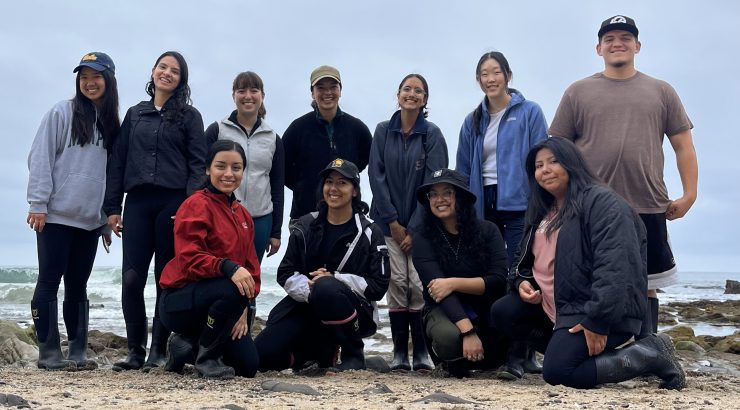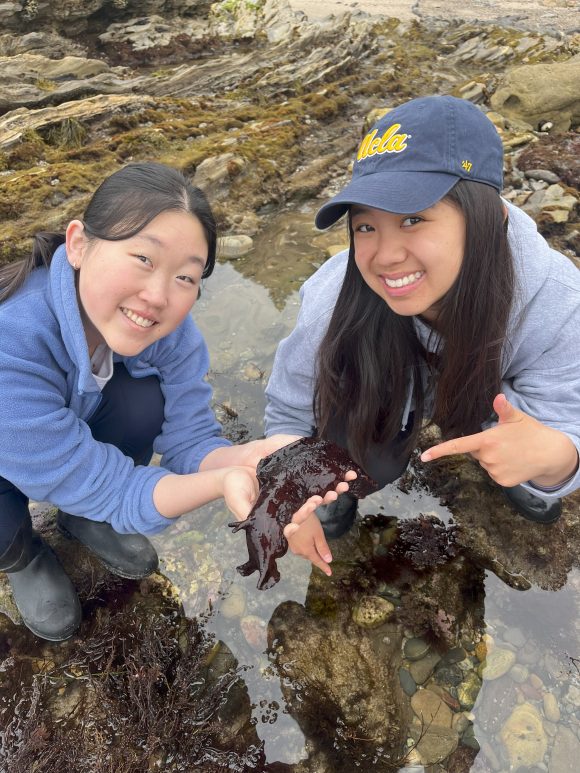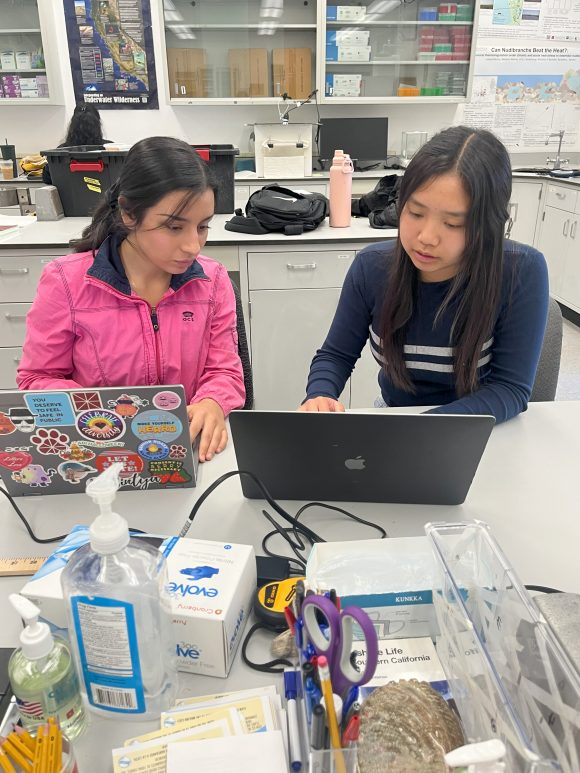
From Our Eyes Wilkinson Student Shares Her Story as a Summer Research Assistant
June 23, 2023
This edition of From Our Eyes features Cintya Felix, a rising sophomore pursuing majors in Political Science and Spanish, who is working full-time this summer as a research assistant at the Socio-Ecological Adaptation & Climate Resilience (SEACR) Lab with Dr. Richelle Tanner (Environmental Science and Policy) on a project funded by the California Sea Grant’s Pathway Inclusive Research Training program. Her experience offers one example of the multiple ways that Wilkinson faculty incorporate students into their funded research projects.
 The Socio-Ecological Adaptation & Climate Resilience (SEACR) Lab consists of Chapman students, faculty, staff, and local community college students who were awarded the California Sea Grant, the Summer Undergraduate Research Fellowship in Earth and Environmental Sciences, or the Saddleback College Foundation Grant. Throughout the summer, we receive various opportunities to engage in summer research activities, faculty seminars, and other professional development events. Through this collaborative partnership, we hope to develop and hone skills useful in research, academia, and the professional world while creating meaningful mentor-mentee relationships.
The Socio-Ecological Adaptation & Climate Resilience (SEACR) Lab consists of Chapman students, faculty, staff, and local community college students who were awarded the California Sea Grant, the Summer Undergraduate Research Fellowship in Earth and Environmental Sciences, or the Saddleback College Foundation Grant. Throughout the summer, we receive various opportunities to engage in summer research activities, faculty seminars, and other professional development events. Through this collaborative partnership, we hope to develop and hone skills useful in research, academia, and the professional world while creating meaningful mentor-mentee relationships.
Whether I’m drafting an International Review Board application for my research or translating educational programming to Spanish, my time at the SEACR Lab is full of challenging yet highly rewarding experiences. We sometimes work with Qualtrics surveys, learn R programming language, or design flyers. Other times we learn and interact with the research done by other students and faculty on campus with the guidance from our postdoctoral research fellow Dr. Keeler-May. Regardless of the task or immediate priority in our lab, at the end of the day, I am left with a sense of accomplishment because we are working towards a bigger picture: increasing environmental literacy and climate advocacy within underrepresented communities.
Climate concern among local community members is directly related to their environmental literacy around how climate change impacts the ecosystem they reside within. Environmental literacy is historically lower among communities of lower socioeconomic standing, immigrant heritage, and/or limited access to civic engagement. Our strategic communication research in the SEACR Lab designs materials that leverage cognitive science and linguistics to promote positive and informative descriptions of climate science. Most importantly, we will prioritize building environmental literacy for communities with English as a second language by offering educational programming in Spanish and Mandarin alongside English. By working directly with local community organizations, we aim to determine how to best support underserved populations who have not been historically involved in climate advocacy efforts.
In the SEACR Lab, one of the several projects is the Multilingual Participatory Science Events which builds upon previous and ongoing research in the Lab about nudibranch behavior, evolutionary physiology, and field ecology. Nudibranchs are colorful sea slugs that live on the rocky shores of our coasts.  Not only are they resilient to climate warming, but they also are more frequently spotted on our shores during El Niño years, which are marked by oceanographic trends of weaker upwelling of cold, deep waters, resulting in warmer average surface temperatures in California. In other words, nudibranchs have higher thermal tolerance traits in their physiology than other species living in the same tidepools.
Not only are they resilient to climate warming, but they also are more frequently spotted on our shores during El Niño years, which are marked by oceanographic trends of weaker upwelling of cold, deep waters, resulting in warmer average surface temperatures in California. In other words, nudibranchs have higher thermal tolerance traits in their physiology than other species living in the same tidepools.
The Multilingual Participatory Science Events, funded by the California Sea Grant Pathway Inclusive Research Training grant, convert this research into educational programming. For this project, we are exploring how participatory conservation science can accomplish outreach and fundamental science goals while unifying advocacy action goals in its administration. This educational programming is offered alongside advocacy organizations in Orange County that prioritize community involvement in local environmental decision-making (e.g., OC Environmental Justice, Reform and Sustain, Citizens’ Climate Lobby, Sunrise Movement). This strategic partnership is of great value because it ensures community members from different linguistic backgrounds develop increased environmental literacy to use their knowledge to advocate for their needs in local decision-making.
Through my work with Dr. Tanner, I am gaining hands-on experience in research as a rising sophomore and positively impacting my community. As our educational workshop dates approach, I feel excited and curious about the outcome, and I cannot wait to interact with the participants of the workshops.

